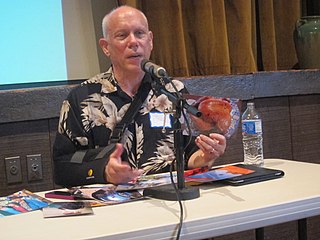A Quote by Bill Atkinson
I have realized over time that I missed the mark with HyperCard. I grew up in a box-centric culture at Apple. If I'd grown up in a network-centric culture, like Sun, HyperCard might have been the first Web browser. My blind spot at Apple prevented me from making HyperCard the first Web browser.
Related Quotes
Once you understand that everybody's going to get connected, a lot of things follow from that. If everybody gets the Internet, they end up with a browser, so they look at web pages - but they can also leave comments, create web pages. They can even host their own server! So not only is everybody consuming, they can also produce.






































